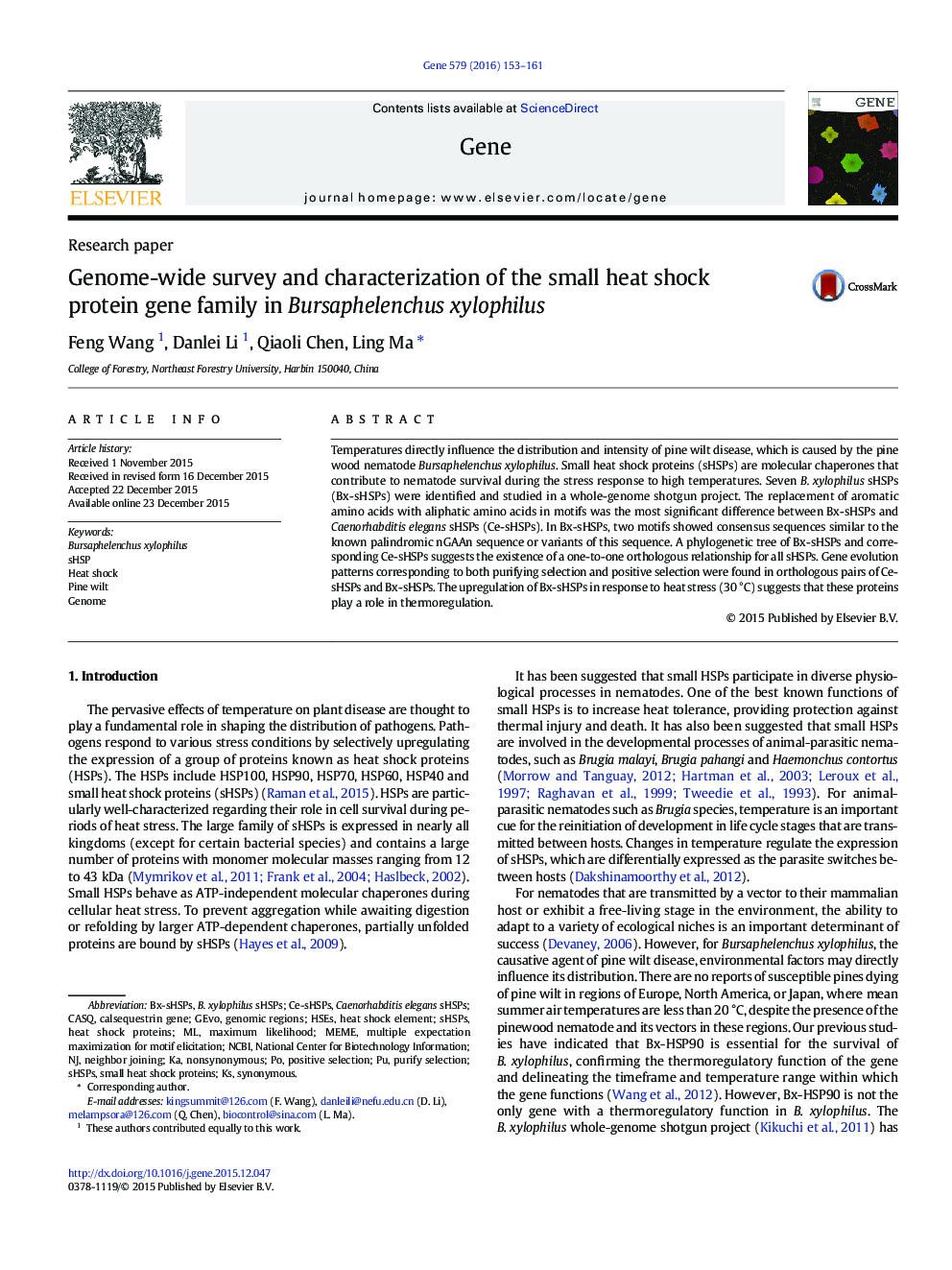| Article ID | Journal | Published Year | Pages | File Type |
|---|---|---|---|---|
| 2815190 | Gene | 2016 | 9 Pages |
•Seven B. xylophilus sHSPs (Bx-sHSPs) were identified and studied in a whole-genome shotgun project.•A phylogenetic tree suggests the existence of a one-to-one orthologous relationship for all sHSPs.•Gene evolution patterns corresponding to both purifying and positive selection were found in Ce-sHSPs and Bx-sHSPs.•The upregulation of Bx-sHSPs in response to heat stress suggests that these proteins play a role in thermoregulation.
Temperatures directly influence the distribution and intensity of pine wilt disease, which is caused by the pine wood nematode Bursaphelenchus xylophilus. Small heat shock proteins (sHSPs) are molecular chaperones that contribute to nematode survival during the stress response to high temperatures. Seven B. xylophilus sHSPs (Bx-sHSPs) were identified and studied in a whole-genome shotgun project. The replacement of aromatic amino acids with aliphatic amino acids in motifs was the most significant difference between Bx-sHSPs and Caenorhabditis elegans sHSPs (Ce-sHSPs). In Bx-sHSPs, two motifs showed consensus sequences similar to the known palindromic nGAAn sequence or variants of this sequence. A phylogenetic tree of Bx-sHSPs and corresponding Ce-sHSPs suggests the existence of a one-to-one orthologous relationship for all sHSPs. Gene evolution patterns corresponding to both purifying selection and positive selection were found in orthologous pairs of Ce-sHSPs and Bx-sHSPs. The upregulation of Bx-sHSPs in response to heat stress (30 °C) suggests that these proteins play a role in thermoregulation.
